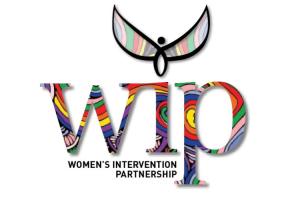Women Involved in Community Transformation
Date published:
The Executive’s Action Plan for Tackling Paramilitarism, Criminality and Organised Crime recognises that women are at the heart of every community and as such have a strategic role to play in building a better society within which they, their families and their neighbours can feel safe and confident.

More than 500 women across Northern Ireland are benefitting from a project aimed at developing their participation and influence in community development as part of the Tackling Paramilitarism Programme.
The project, Women Involved in Community Transformation (WICT), helps women develop the skills to work in their communities; enables them to make new connections with community and voluntary groups; and supports them to become involved in positive community activity.
It also supports the development of influential relationships for women to build participation in political structures and grow civic leadership from the neighbourhood level upwards and hundreds of women are benefiting from it already.
More than 500 women across Northern Ireland participated in the first phase of the project, which is delivered by a consortium of community and voluntary sector organisations working with the Department for Communities, and 425 are now signed up for Phase 2.
The participants took part in a number of training modules within Phase 1, including Leadership and Mentoring, Women in the Justice System; Women in Peace-building; Citizenship and Personal Development and Health/Well-being. More than 50% of the women who completed Phase 1 gained a new accreditation and their achievements were celebrated at a special graduation event last year.
Speaking at the Tackling Paramilitarism Conference recently, one of the participants talked about the life changing impact the project has had on her.
She said: “I was delighted to then enrol on the WICT programme and absolutely loved it. I would go as far as saying the programme saved my life.
“The topics we covered such as confidence building, assertiveness and self-esteem came just at the right time for me – I couldn’t wait for more, I saw the light returning in my life.
“We discussed everything, debated about so much, laughed a lot, cried a lot and recognised so much about the community we lived in. One discussion we kept coming back to was the fact that women in our communities had no voice, we had no-one representing us, no-one speaking for us and certainly no-one to help us fight the battles we went through day and daily.
“The programme has given us all the drive and ambition to change that and today, thanks to the WICT programme we are in the midst of establishing our own women’s group – we want to see women from our communities come out of their houses, have the opportunity to develop themselves. We want to be that voice, we want to see that change, we want to help make our community a nicer, safer place to live - have the fresh start we never thought possible and I’ll be honoured to be at the forefront of that.”
Around 50 women are also involved in the Engage project as part of the Tackling Paramilitarism Programme. The project, which is delivered by PBNI in partnership with Start360, is aimed at ensuring that women in the criminal justice system are equipped with the resilience to withstand the pressure of paramilitary influence when they exit the system through a range of interventions tailored specifically for them.
Many of the women have highlighted the pervasive and damaging impact that paramilitaries have had on them their families and the wider communities and the programme is helping to provide the women with the skills and ability to withstand these negative influences.
The programme takes a holistic approach to addressing needs which includes generic counselling, trauma work, addressing addiction issues, family services, domestic and sexual violence, mental health issues and the impact of living in communities affected by paramilitarism, criminality and organised crime.
Feedback on the programme, which is run by PBNI, indicates that it is having a positive impact on women’s lives. For example, 84% of participants reported an increase in confidence, 77% reported an increase in self-worth and 100% of women reported that they felt better able to support/encourage their children regarding paramilitary activities where applicable.
The statistics show that the TP programme is helping local women to build resilience to improve their lives and make a positive contribution to their communities. On International Women’s Day this is also a reminder of how strong women are, not only at the core of the family, but as a positive driving force within society.